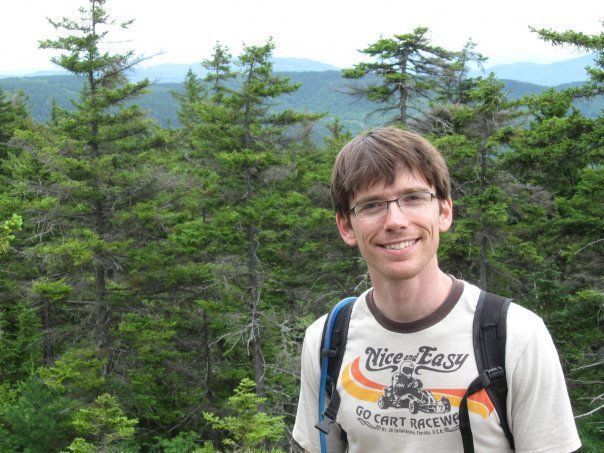Some information may be outdated.
It was the Fourth of July.
I rode my bicycle down a hill, warm air on my skin, the promise of adulthood only two months ahead at the University of Vermont.
A Nissan Pathfinder turned left into my lane. No time to brake, to swerve or to say “Drat!” — only a windshield and oblivion. I spent three days in a coma, intubated and unresponsive. For me, that was the easy part, though it tortured my family.
My difficulties began when I regained consciousness with a broken jaw, torn muscles in my neck and surgeons worrying about a leaking heart. My body was in bad shape, and so was my mind. Years of memory had vanished — years spent with my friends and family — the last with my grandmother, critical lessons in class and important experiences during trimesters abroad. Birthdays. Graduations. Moments with my love.
Amnesia is a startling loss, but deeper devastation unfolds with the inability to encode new memories. I had become an imbecile.
“Why am I in the hospital?”
For weeks, I was a broken record. When a person can’t make new memories, they have, in a fundamental way, departed from the world of the living.
Eventually, after many weeks of speech, physical, and occupational therapy, I finally understood: someone had done this to me. That’s why my jaw was wired shut. That’s why doctors told me to forget about college That’s why perfect strangers hugged me and asked about my family. That’s why I broke up with my girlfriend. That’s why I was curious about the idea of not existing.
One careless driver had ruined my life.
It’s easy to blame, to resent. We do these things to protect ourselves, for we are tender creatures, prone to injury. Whether it’s a wayward car or a wayward smirk, a betrayal or a jibe, forces threaten our well-being. When a person is behind the wheel or behind the barb, a powerful instinct might well up in us. Anger and bitterness stick to the soul, reminding us of the offense whenever their name comes up, bathing us in aversion whenever the pain fills us again, rekindling resentment whenever we see what could have been instead.
To be wronged is terrible.
Yet to harbor resentment only perpetuates the injury.
Consider a point from Megan Feldman Bettencourt’s book, “Triumph of the Heart,” which says, “Merely thinking about someone against whom you’re holding a grudge spikes heart rate, lowers immune response, and floods the brain with neurotransmitters like cortisol and adrenaline, which over time impede problem-solving and increase depression.” A whole cascade of destructive effects kicks into action with resentment. That’s why it feels so bad. Evolution ingrained in our genes a very potent response aimed at anyone who harms us. This is a hair-trigger mechanism equipped with daunting firepower.
It gets worse when these accusations turn inward, when we blame ourselves without mercy or hold ourselves in contempt. It gets worse because undercutting one’s heart-mind taints every interpretation of the world. Destruction orbits self-hatred.
To forgive others or one’s self is not to condone, nor is it a pardoning of all responsibility. It does not require reconciliation, and we can still be cautious and prudent. Forgiveness, a release of resentment, is a gift to ourselves. It can be pointed at those who have wronged us, and it should be pointed at us, too, for our mistakes. Usually, the truth is: nobody meant to harm us, and we don’t wish anyone else harm either.
Sarah didn’t mean to hit me with her SUV. She was 16 years old, driving a car full of family and friends through busy holiday traffic. A police cruiser waited at her rear bumper. Another idled to her right. She made a mistake. Now that I know Sarah’s story, my heart goes out to her. With practice, I’m learning to forgive myself too for the many injuries I’ve caused. I aim to find wisdom in these hard-earned lessons that might prevent future pain.
We are human, though. Inevitably we will harm and be harmed. That is the nature of soft souls in search of meaning, connection and acceptance. We are vulnerable. Forgiveness is the tool that allows softness to remain, and with it, trust in the world. Repairing one’s soft heart, Bettencourt says, “can be a long, nonlinear process rather than a one-time event.” It takes practice. In some cases, it takes concerted, focused effort. Brain science says that that which is reinforced will stick. Therefore, I have found great value in regularly meditating on these phrases:
I allow myself and you to be imperfect.
I allow myself and you to make mistakes.
I allow myself and you to be learners of life’s lessons.
I forgive myself and you for the harms we have caused, and if I cannot forgive us now, may I forgive us in the future.
Soon, we may find ourselves unable to brake, to swerve, to say “Drat!” In the aftermath, perhaps we can employ the grace of forgiveness, a balm for these many tender and worthy hearts.
Daniel McNeil is the director of Grand Area Mentoring.
“We are human, though. Inevitably we will harm and be harmed. That is the nature of soft souls in search of meaning, connection and acceptance.”
Appreciate the coverage? Help keep local news alive.
Chip in to support the Moab Sun News.



